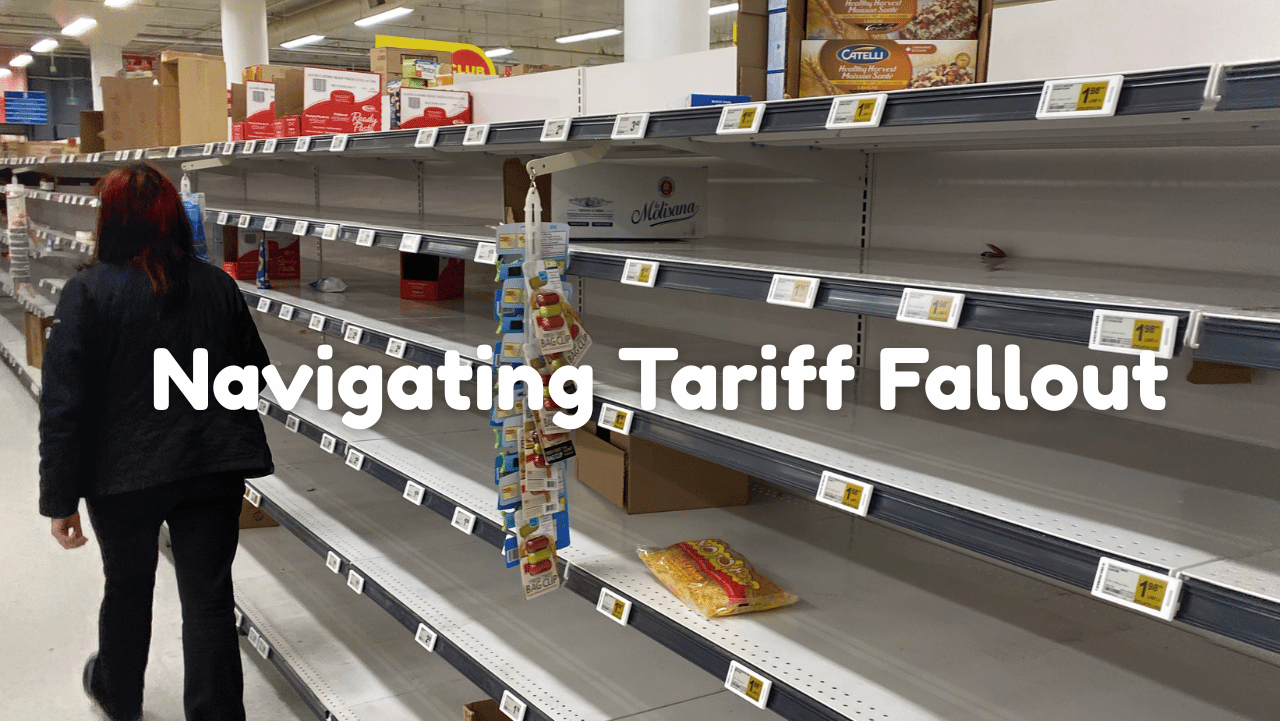Big box stores show partially bare shelves to customers who have shopped in them lately. Tariffs threaten imported goods while product shortages emerge because businesses must cancel orders and supply chain disruptions occur. The combination of higher prices and reduced availability of everyday products and desired items occurs due to this dual threat. Families need to enhance their planning approach while making strategic purchasing decisions to overcome current economic difficulties.
1. Understand the Dual Impact: Price Hikes and Empty Shelves:
Businesses will stop placing orders because they want to prevent higher costs or they cannot predict market demand. The outcome includes higher prices for existing stock and decreased product availability and vacant shelves.
Some product groups with strong international dependencies and complex supply routes will face both higher prices and reduced availability. The following products fall into this category: electronics, specific food products and particular clothing items along with specialized industrial components used to make consumer products.
Regularly track news articles together with economic research which investigates supply chain problems and inventory challenges stemming from tariffs and international trade dynamics.
2. Proactive Purchasing and Inventory Management:
Before purchasing anything assess your basic requirements above your personal wants. Building a moderate supply of your usual non-perishable items remains acceptable but make sure you don’t accumulate more than you need while considering storage capacity. You should obtain filter replacements for your water and air systems only to last until the end of the year.
You should prepare for longer delivery times when ordering imported products. Plan ahead for larger purchases or replacements.
Local and domestic producers have become more important because of import uncertainties. Choosing domestic alternatives will help you avoid both the possibility of running out of stock and price fluctuations because of tariffs.
To reduce dependence on single suppliers for essential products select different stores and online retailers. The likelihood of obtaining necessary items will increase by researching both nearby stores and online vendors and farmers markets.
You should prepare yourself to accept different brands and specifications for your preferred imported items because of their unavailability or high prices.
3. Smart Shopping and Resourcefulness in a Constrained Market:
Large imported items that you need to purchase in the present day could provide protection from current tariff effects and future stock shortages. The need to store your purchase and future market price movements requires attention during your current buying decision.
The secondhand market now carries additional significance because shortages of new imported goods will require people to seek alternative purchasing options.
You should now view repair reuse and repurposing as essential steps because new replacement parts may become difficult to obtain or extremely expensive. 3D printing technology makes plastic part repair printing surprisingly accessible for most people today.
Neighbours should discuss the sharing of infrequently used items with friends and family members to cut down on individual buying needs.
Learning basic repair techniques and implementing DIY solutions enables you to preserve your current belongings and decrease your need for imported products which might be in short supply.
4. Community and Collaborative Strategies:
Your community should exchange details about available products and potential product deficiencies. Small groups should organize bulk purchases of essential items only when logistics permit.
Local businesses should receive your support because they help create sustainable supply chains that strengthen your community.
5. Long-Term Preparedness and Financial Prudence:
The uncertainty of tariffs and potential shortages makes it essential to build an emergency fund that will help you manage price increases and find alternative sources for essential products.
Regularly review your budget while making essential changes based on price fluctuations and product availability. You need to prepare yourself to select essential expenses over others.
Financial resilience takes priority in times of economic uncertainty because it requires long-term financial planning through savings and responsible debt handling as well as income stream diversification.
Resourcefulness together with foresight and adaptability becomes essential for handling both large tariffs and potential product shortages. Families who understand dual-impact effects while purchasing proactively and using resourceful alternatives and building community connections will survive the economic storm and obtain necessary goods.




